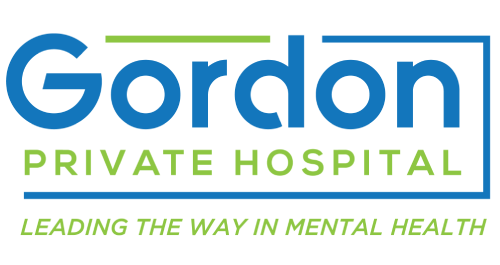
HOME . Mental Health Treatments . Antenatal / Postnatal
Antenatal / Postnatal
Antenatal / Postnatal
Mental health treatment for Antenatal / Postnatal in Sydney
Antenatal depression means depression that starts during pregnancy.
Between 10-15% of pregnant women experience episodes of mood swings that last more than two weeks at a time and interfere with normal day to day functioning.
These can be a reaction to the pregnancy itself, for example if the baby is unplanned or unwanted, or due to health issues if the mother has such as persistent nausea, or due to other major life stresses such as serious relationship problems.
For some women who become depressed during pregnancy there will be more of a genetic or biochemical basis for their symptoms.
Depressive symptoms in pregnancy can also be due to a continuation or relapse of a pre-pregnancy condition especially if prescribed medication has been stopped just prior to the pregnancy.
Around 40% of women who experience symptoms of depression during pregnancy will go on to experience postnatal depression if they do not receive treatment. If you experience such symptoms it is recommended that you seek early assessment so that steps can be taken to provide appropriate support or treatment.
The Baby Blues will be experienced by some 50-80% of women. Many women experience a brief episode of mood swings, tearfulness, anxiety and difficulty in sleeping in the first week after the birth of a baby. Symptoms generally settle during the first week after birth and require no special treatment other than adequate rest and support.
Postnatal depression (PDN)
Many women experience mood swings after the birth of a baby. However, postnatal depression describes the more severe or prolonged symptoms of depression that last more than a week or two and interfere with the ability to function on a daily basis with normal routines including caring for a baby.
For around one in seven women the stresses and emotional changes that accompany their postnatal experiences can be intense and include strong depressive mood swings, anxiety, social withdrawal, irritability and loss of enjoyment in usual activities.
Postnatal disorders can interfere with the developing relationship between a mother and her baby after birth (bonding and attachment) and impose strains upon the parental relationship as well as causing distress for women themselves.
Puerperal psychosis
‘Puerperal psychosis’ is an all-encompassing term used to describe any psychotic condition occurring in the first month post-partum.
The psychotic features of depression (delusions and hallucinations) are usually extremely florid and therefore very disturbing to the woman and to family members. In addition, the woman may appear quite cognitively affected – that is, in terms of being aware of what is happening to her.
A small percentage of women may have a first onset or a recurrence of a schizophrenic episode but over the last few decades, we have come to realize that the majority of such episodes are actually mood disorders.
Thus, the post-partum period provides a distinctly increased risk for women who are genetically disposed to develop any of the more biological mood disorders or who already have such a history or who carry the risk to their development. The risk appears highest for those who have a history of bipolar disorder.
Specifically, a woman with bipolar disorder has a 25 per cent chance of puerperal psychosis compared to a general population risk of 0.1 per cent – a risk 250 times greater.
The main manifestations are manic episodes, psychotic depressive episodes and, quite commonly, mixed states where both manic and depressive features are experienced. Onset is usually sudden, within the first two or three weeks after the birth of the baby. The outcome is usually good, with most women responding well to treatment.
Treatment options
Living with postnatal depression can be very difficult. Many women struggle with the first step in coming to terms with living with postnatal depression, which is to believe that you actually do need and most importantly deserve help. Often once a woman has made that decision it then becomes the issue of where to look for help and what exactly will work.
A family history of depression, or previous episodes of depression, increases the chance of a woman developing a postnatal mood disorder, as do a number of psychosocial factors, including low self-esteem, exposure to poor parenting practices or difficulties with a spouse. Management of postnatal depression must address any such relevant risk factors. Allowing the woman to sleep (easy to recommend, not always easy to implement) is also of key benefit.
Drug treatment during pregnancy and while breastfeeding is clearly an extremely important issue. The woman, her partner and her psychiatrist should work together to individualise recommendations and address and make decisions on both the risk-benefits of any medication treatment and risk of untreated psychiatric illness.
With better awareness of postnatal disorders within our society, mental health professionals hope that this will result in an improved understanding of the illness and its effect on women and their loved ones. Better recognition of the illness will enable women or their family, partners and friends to obtain treatment early and, therefore, assist in the recovery process.
contact gordon private hospital
Treatment for Postnatal Depression
Living with postnatal depression can be very difficult. Many women struggle with the first step in coming to terms with living with postnatal depression, which is to believe that you actually do need and most importantly deserve help.
Having a baby is supposed to be one of the happiest times in a person’s life. So when a woman suffers from antenatal or postnatal depression, it deserves treatment.
At Gordon Private Hospital, our multidisciplinary team of mental health specialists can provide safe and effective depression and anxiety management treatments so that your pregnancy – and the birth of your baby – is something that you are as emotionally and cognitively ready for as possible. Please contact our Admissions Team for further information.
